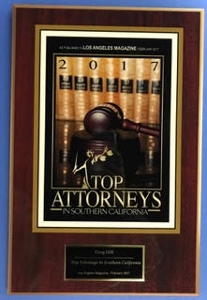Technology is often a good thing, making difficult things easier and slow things faster. It can also be misused, or even abused, trampling privacy rights, even if technology seems to make the world a safer place. The following case seems to exemplify this very point.
What One Should Learn from This Article: It is improper for police to use a tracking device on a car without a warrant, so evidence obtained from such a device is inadmissible for use to prosecute the owner of the car or driver of the car.
On Monday, January 23, 2012, the U.S. Supreme Court unanimously ruled that evidence gathered by police using a GPS fastened to a drug dealer’s car without a warrant was improperly obtained.
U.S. v. Jones (2012) 565 U.S. 400, 132 S. Ct. 945, 181 L.Ed. 2d 911 (slip opinion at 2012 DJDAR 895).
With Justice Antonia Scalia writing the majority opinion, the Court ruled that the act of attaching the GPS was a warrantless property invasion, so the evidence derived from it showing defendant’s whereabouts for twenty-eight straight days was inadmissible. The majority opinion was noteworthy, however, for not saying a warrant is always required for such tracking or for stating that there is any privacy right in one’s travel history.
In a concurring opinion written by Justice Samuel Alito, four justices hesitated from stating at what point the police tracking became a search, hinting that it was not immediately a search because all the movement of the vehicle was in broad view of the public anyways, but that the cumulative effect of gathering such information became a search eventually and it consequently became entitled to Fourth Amendment protection. In a separate concurring opinion, however, Justice Sonia Sotomayor said there was a search immediately once information began being gathered.

This opinion may create a wave of constitutional challenges to everyday police investigation methods, such as removing mud from a tire, paint from a car, or even saliva from a DUI breath test mouthpiece, as it seems to reinvigorate property rights in areas that most would agree has been deemed lost. If there is a property right in one’s whereabouts, after all, would not mud showing one’s whereabouts be protected. Paint from a car, i.e. paint transfer showing a car had a collision earlier with another vehicle (perhaps a police car), would be useful to show the car’s whereabouts if the collision was known to have occurred at a specific location. Saliva from a DUI breath test mouthpiece may be not be evidence of someone’s whereabouts, but it is a fluid from inside one’s body, so presumably a warrant would be required if analysis of it for DNA and not just BAC was undertaken.
In addition, the U.S. Supreme Court’s opinion directly seems to conflict with the 9th U.S. Circuit Court of Appeals decision in U.S. v. Pineda-Moreno (2010) 591 F.3d 1212, wherein the Ninth Circuit ruled that police did not need a warrant to install a tracking device to monitor a suspect.

The opinion, more importantly, seems to have the potential for other far-reaching effects. For example, would evidence from a cell-phone that tracks movement be inadmissible as an illegal search? How about evidence of the hundreds of websites that a person may visit or evidence of one’s entire checkbook? After all, where one moves in public, which websites one visits and what checks one writes each seem to involve activity wherein one waives a certain right to privacy. The activity such as traveling in the public, voluntarily visiting a website that is recorded on another’s hard drive and tendering a check to another person certainly involve relinquishing one’s identity to another person in some form, after all.
U.S. v. Jones may ultimately usher in a series of opinions that restores property rights in certain activities, which may cheer many, but also may shelter certain crimes. Critics may say that Scalia has led the Court – and the nation – onto a slippery slope of championing property rights only to undercut well-established law enforcement methods that have served to protect our citizens for decades.
For more information about warrantless searches, click on the following articles:
- Warrantless Search of FedEx Package Containing Marijuana Held Improper and Case Dismissed
- Becareful Who Your Friends Are – You Can Be Arrested on a Warrantless Search
- Strong Marijuana Smell Does Not Justify Warrantless Search of Hotel Room
For case summaries of selected cases our firm has handled, click
here.
Contact Greg Hill & Associates

